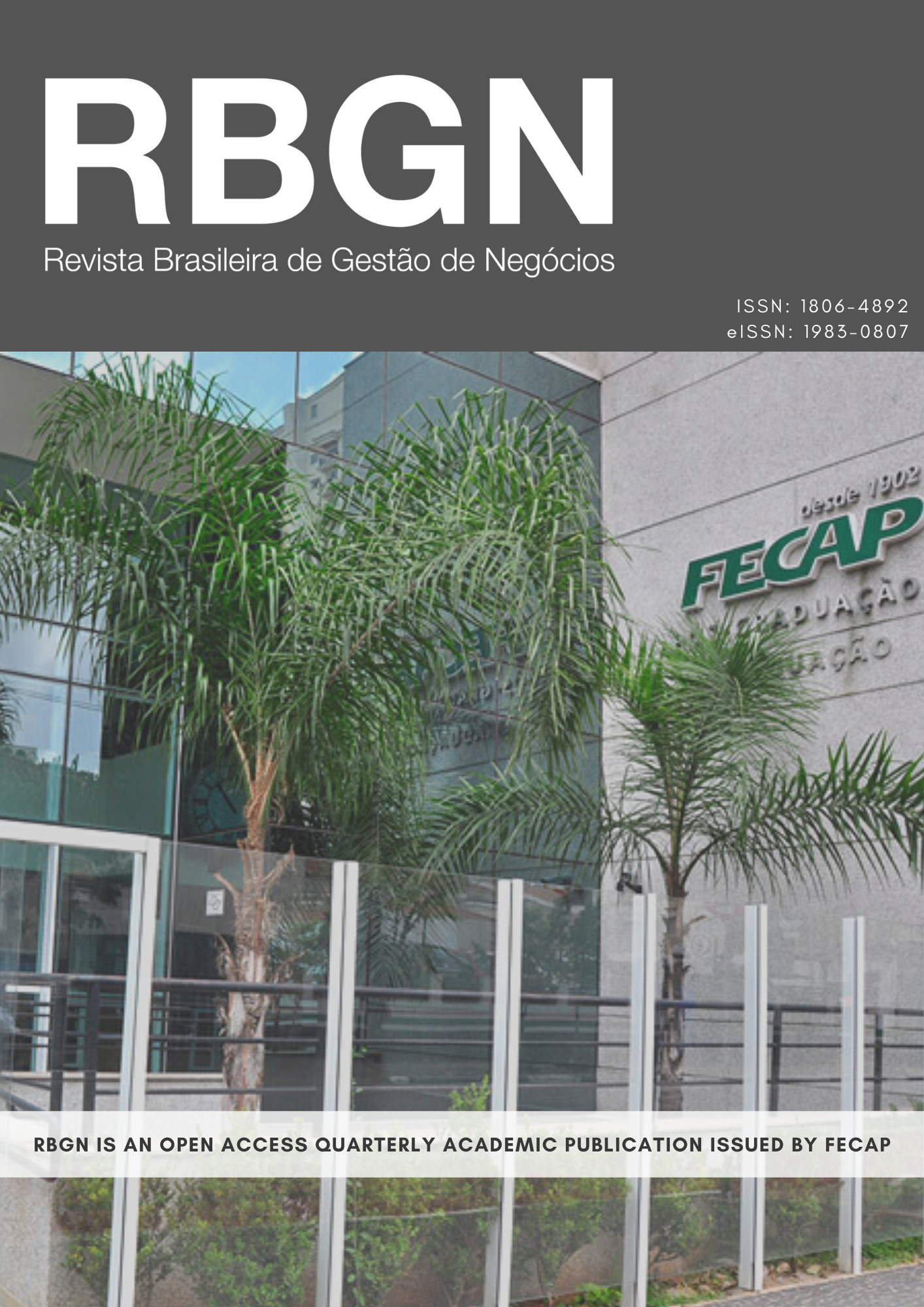Abstract
Purpose – This paper aims to investigate how and to what extent intangible assets influence the evaluations of financial analysts covering companies listed on the Brazilian Stock Exchange (Brazil, Bolsa, Balcão – B3) from 2010 to 2016.
Design/methodology/approach – The analysis was divided into two stages. In the first stage, we examined intangible asset taxonomies (i.e., structural, relational, and human capital) through content analysis by counting repeated key terms related to each category of intangible assets cited in the financial analysts’ reports. In the second stage, we analyzed the influence of intangible asset proxy variables on coverage, forecasting errors, and accuracy of earnings per share forecasts by financial analysts.
Findings – In the first stage, the results suggested that analysts cited more terms related to the structural capital category, particularly the terms “strategy” and “mission.” In the second stage, the results pointed to the absence of statistically significant relationships between the studied variables. Therefore, it is possible to infer that although financial analysts covering firms in the Brazilian Stock Exchange cite terms related to intangible assets in their reports – which, in turn, points to the relevance of these assets during the company valuation process – the difficulty of conducting evaluations grounded on reliable bases, the scarcity of quality information about their development, and incentive problems may challenge or even prevent quantitative assessments targeted at capital market participants.
Originality/value – By adopting an innovative methodological approach in the Brazilian context, this study highlights the fact that intangible assets influence financial analysts to a certain extent and they, in turn, manage to incorporate them into their analyses, although the statistical relationships have not been explicitly demonstrated.
If a paper is approved for publication, its copyright has to be transferred by the author(s) to the Review of Business Management – RBGN.
Accordingly, authors are REQUIRED to send RBGN a duly completed and signed Copyright Transfer Form. Please refer to the following template: [Copyright Transfer]
The conditions set out by the Copyright Transfer Form state that the Review of Business Management – RBGN owns, free of charge and permanently, the copyright of the papers it publishes. Although the authors are required to sign the Copyright Transfer Form, RBGN allows authors to hold and use their own copyright without restrictions.
The texts published by RBGN are the sole responsibility of their authors.
The review has adopted the CC-BY Creative Commons Attribution 4.0 allowing redistribution and reuse of papers on condition that the authorship is properly credited.


